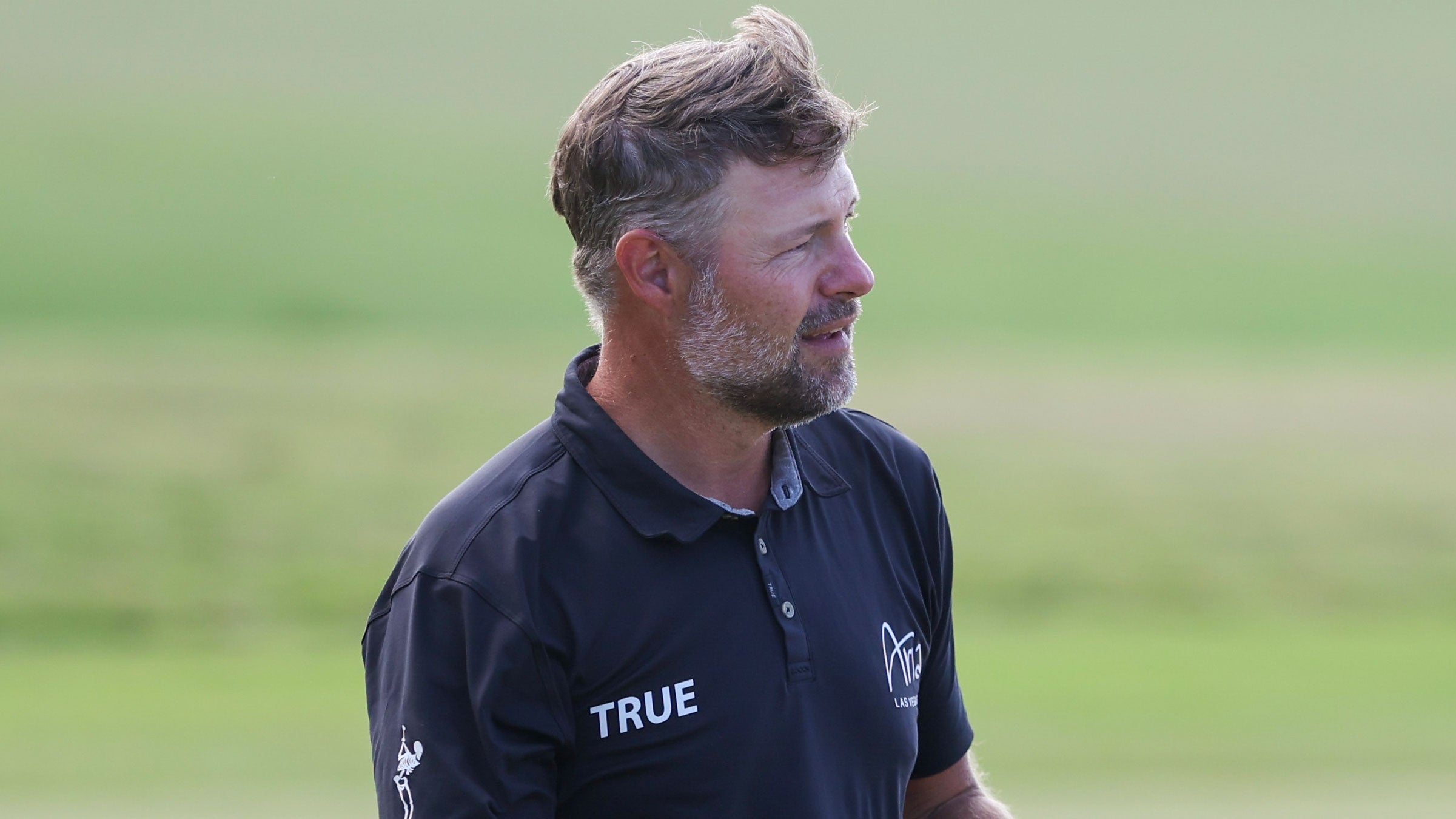If you’re a golf fan of a certain age, you might remember Ryan Moore as an up-and-comer by way of Puyallup, Wash., with an amateur resume that would make Bobby Jones blush. In 2004 alone, when he was still matriculating at UNLV, Moore won the U.S. Amateur, Western Amateur, U.S. Amateur Public Links and the NCAA individual title (he remains one of only five players to have won the U.S. Amateur and NCAA individual title in the same year) before a year later winning the Ben Hogan Award as the nation’s top collegiate player. That same year Moore finished as low amateur at the Masters, in 13th place overall. Chief Brody from Jaws may have needed a bigger boat, but Moore needed a bigger trophy cabinet.
Moore’s prodigious play earned him several sponsor’s exemptions on the PGA Tour in 2005, and he didn’t let them go to waste, racking up $686,250 in just 14 starts, which elevated him to the equivalent of 113th on the money list and earned him playing privileges for the 2006 season. No other player had jumped directly from the college ranks to the PGA Tour without a stop in Q School since Tiger Woods a decade earlier.
Moore seemed like the kind of player who might win multiple times a year, but he didn’t nab his first Tour title until 2009, at the Wyndham. Hampering his progression were injuries, most notably his surgically-repaired left wrist. Moore would win again — four more times between 2012-16, including victories in consecutive years at the Tour’s Malaysia stop — but he never became the force many had assumed he’d become. Instead, Moore became a Tour stalwart, with 425 career starts over 18 seasons and more than a $33 million in earnings.
In recent years, though, the checks haven’t come so easily. Moore hasn’t finished in the top 100 in the FedEx Cup points race since the 2018-19 season. Last season, he finished 188th, and this season, after making only 10 cuts in 28 starts, he’s currently sitting at 150th. With a wife and three kids at home in Vegas and a comfortable nest egg, what keeps Moore grinding? Surely not the frequent flier miles.
“I’ve been asking that question a lot to myself the last couple years when I’m out here and not performing and not playing well and just not feeling like myself and really not wanting to be here a lot of weeks,” he said Friday from the Butterfield Bermuda Championship. “It’s the hard part. I have a family and young children and it’s hard missing out on their soccer games or their ballet stuff. It’s fun to be there for it, and I love it when I’m home. It makes it that much harder when I do come out, especially when you’re struggling.” Moore added: “I’d say that’s been my biggest struggle the last two or three years is the desire. I’ve been out here for 18, 19 years, whatever it is at this point, and gone traveling a lot. It’s a lot.”
Tiger Woods will tell you that winning takes care of everything. That may be true, but simply making cuts also takes care of some things, notably giving players confidence in their abilities, or, in Moore’s case, reassuring him that he can still hang with the big boys. The fall swing has been good for Moore in that sense, with three made-cuts in four starts since September. That improved play, he said, has been powered, in part, by better health that has allowed him to feel like “I’m kind of doing what I should be doing on the golf course, and it’s just been now trying to put all the pieces together to shoot those scores.”
The upswing has continued this week at Port Royal in Bermuda, where Moore backed up an opening six-under 65 with a 64 on Friday, leaving him just two back of Alex Noren’s lead — even without his best stuff. “Yesterday I kind of hit it poorly by my standards but shot a good score,” Moore said. “That actually weirdly gave me some confidence like, okay, just kind of remember you don’t have to be perfect, you don’t have to drive it right in the middle of the fairway every single time. Like, hey, you can be scrappy sometimes and make some up-and-downs. There’s a lot of different ways to shoot under par. Days like yesterday just kind of remind me like what I can do and give me some confidence and some better feelings going forward.”
The stats tell the story: In the first round, Moore missed 9 of 14 fairways yet still managed to hit 14 greens in regulation. And when he did miss the green, he was a perfect 4-for-4 in scrambling, a category in which he also excelled in the second round, getting up and down three times in three attempts. Moore’s putting also has been on point.
“My caddie and I were joking yesterday that it might have been the worst I’ve hit a golf ball in the last, like, three months, but I made putts,” Moore said. “When I did get out of position, I made a couple great par-saving putts and knocked in a couple 15-, 20-footers, and that’s just all the difference. I controlled it well enough to not get myself in too much trouble. But, man, I’ve been hitting it really, really nice the last few weeks and yesterday was actually a little bit of a shock, especially off the tee for me.”
If Moore can keep finding ways to score, another surprise might be in store for the weekend: Moore’s first Tour title in seven years.
